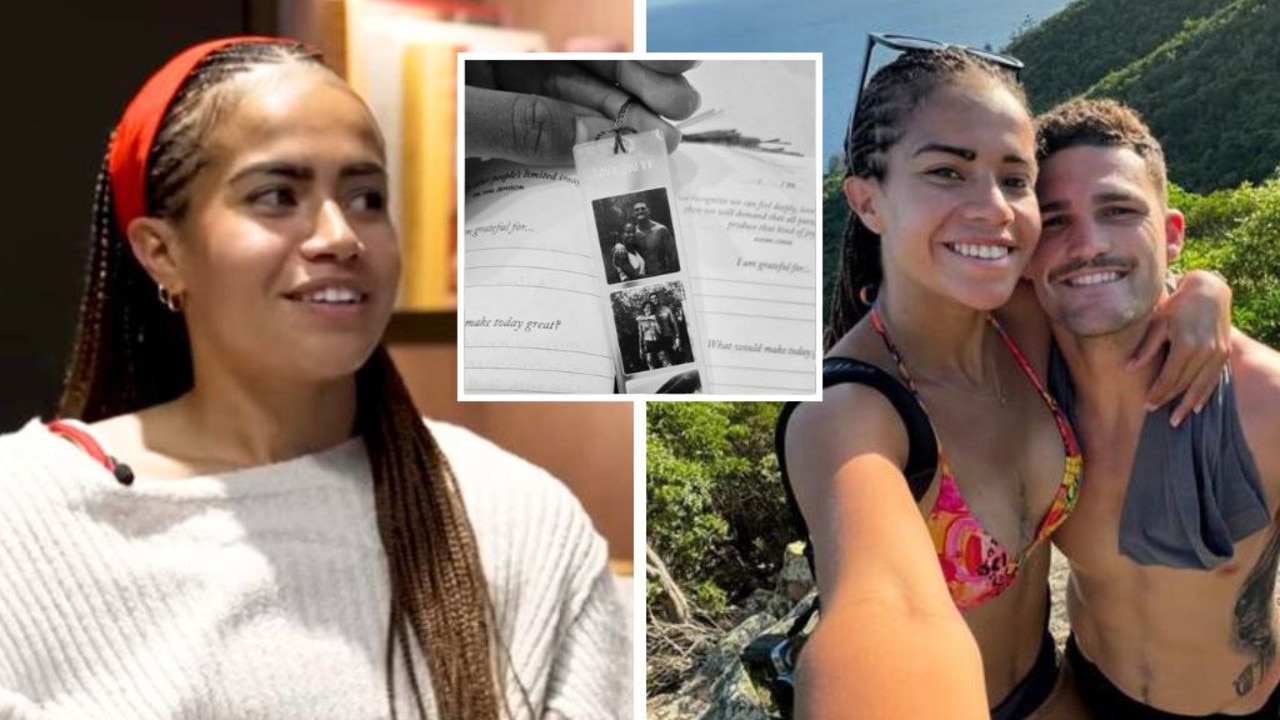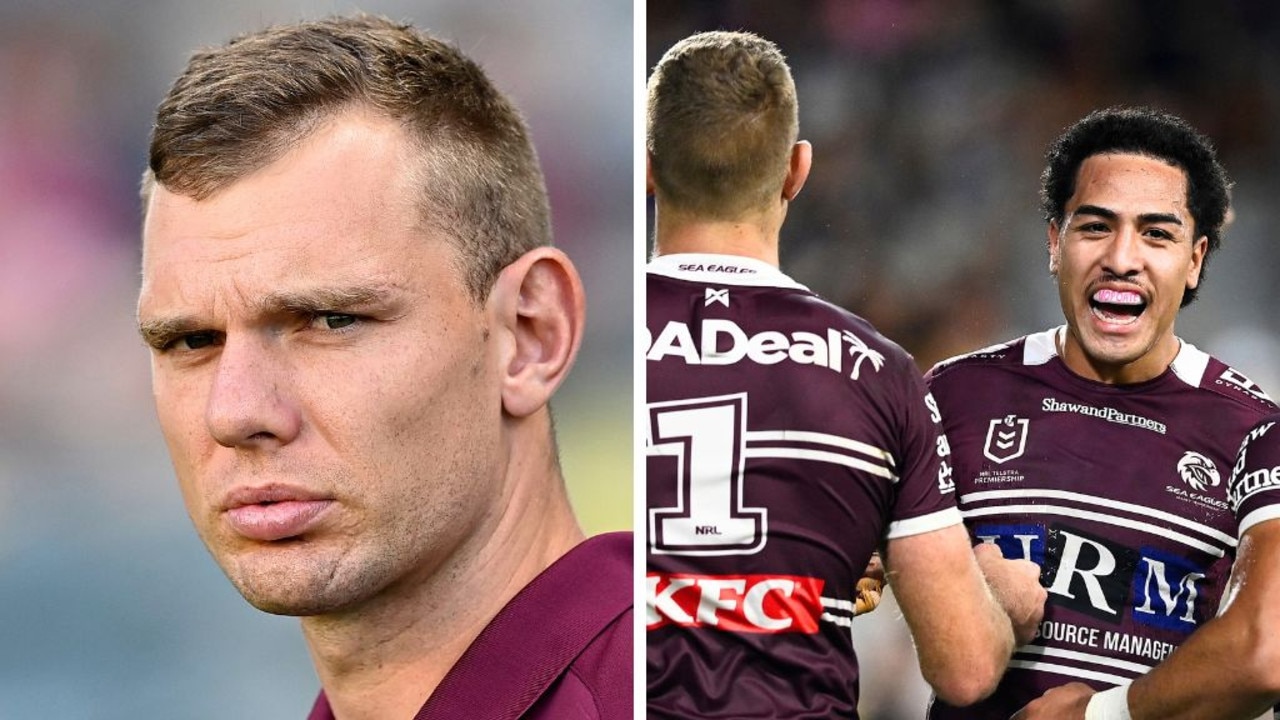NSWRL chair Carolyn Campbell is tackling rugby league stereotypes
Carolyn Campbell may not be a household name just yet, but that’s sure to change with the new chair of the NSWRL insisting she is here to promote change - not tick a box, writes PAMELA WHALEY.
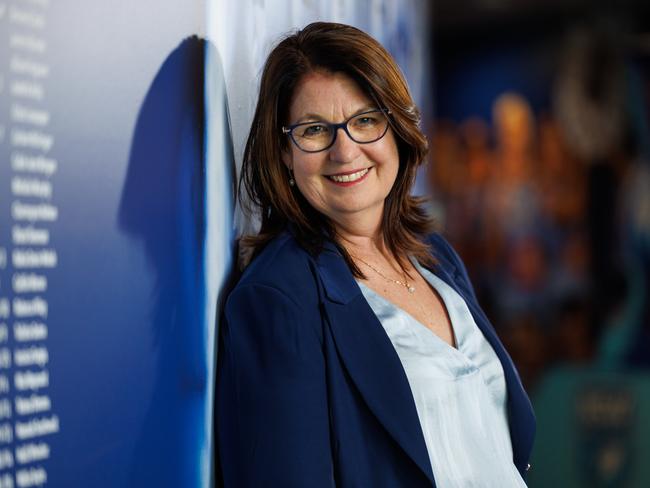
NRL
Don't miss out on the headlines from NRL. Followed categories will be added to My News.
Carolyn Campbell has made her first declaration as the new chair of NSWRL, saying the timing of women’s State of Origin is holding the showpiece event back from reaching its full potential.
In a wide ranging interview, one of Australia’s most accomplished sports administrators and now NSWRL’s first female chair outlined her plans to navigate a complex but exciting time for women’s sport in the country.
It comes during a rapid boom for female sport, with registrations with the state body set to surpass 30,000 for the first time in 2025, a representation of 25 percent of the total participation.
It marks a significant rise from just female 7000 registrations a decade ago.
A big part of that is the success of women’s State of Origin, which Campbell believes is now driving more young women to take up rugby league.
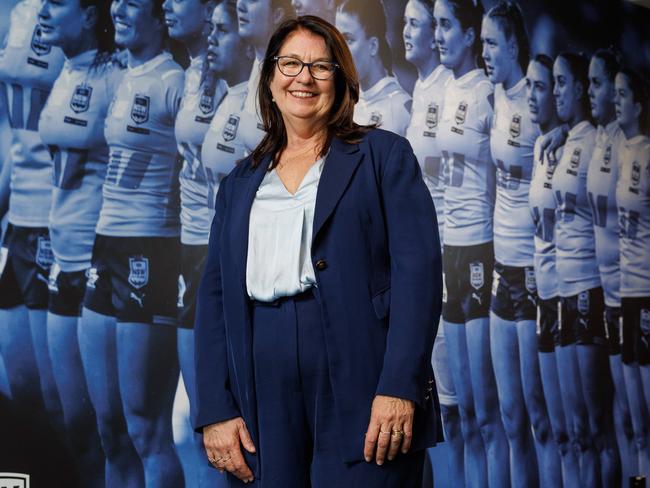
ORIGIN TIMING DOES NOT ADD UP
At the moment, Origin I in May is the first major event on the women’s rugby league calendar with the NRLW and NSWRL seasons running concurrently beginning in July.
Essentially women play the biggest game of the season cold, save for an expensive six-week non compulsory training block in preparation.
“To play our three most elite games out of season for the NRLW players is, from a physical preparation and everything else, is quite challenging,” she says.
“To me, doesn’t really showcase it to the degree it could be.
“Because you’ve got to get the players up, then they go back into pre-season to start again to culminate in a grand final.
“Whereas the guys will have had probably eight or nine rounds under their belt, plus preseason (before playing Origin).
“The timing is challenging. So what does that look like? And that has a whole lot of fallout effects, players being released back to clubs, coming into Origin camps.”
A longer NRLW season would fix the problem, but Campbell has called on the NRL to look at it now.
“That’s on the horizon, so that could be one resolution. But I think because we don’t control the NRLW timing or season, that’s for them to look at in a really sound way,” she says.
“It probably needs to at least have an extrapolated plan to see how that might change in the next couple of years. Or do we do something else in terms of where it’s positioned?”
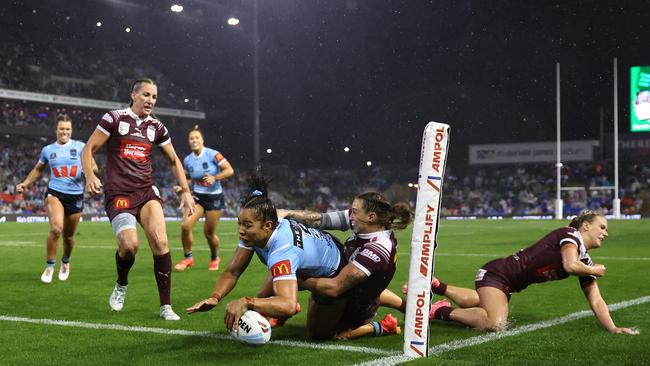
NOT HERE TO TICK A BOX
Rugby league circles may not know her name yet, but they will.
Campbell served as a director with NSWRL since 2023, but has spent 35 years in roles with basketball and hockey, including as manager of the Hockeyroos during their golden era, as well as an 18-year stint as CEO of Netball NSW.
The Western Australian-raised executive is also a former international, captained the Australian under 21s hockey team, and now serves as the CEO of Scouts NSW.
Sport is Campbell’s passion, and women’s sport is her sweet spot.
Her appointment as NSWRL’s first female chair, as well as the addition of former NSW captain and women’s rugby league trailblazer Tarsha Gale to the board, signals the organisation’s intent to double down on those rapidly increasing participation rates.
“To have representation of women on the board is only a natural fit,” Campbell says.
“And the directors have been really clear in getting that to happen, firstly with my appointment two years ago, and there was a female director before me.
“I think it’s natural, but neither of us (Campbell or Gale) want to think we’re there because we are female and ticking a box.
“We’re there because we bring a skill set that is very valued by the board and required by the board. But in addition to that is just that diversity of thought that we might be able to bring.”
Rugby league is still a male dominated sport both on the field and in front offices, but times are slowly changing.
“To normalise women in power positions makes it sound like it’s weird, but to flatten that out a little bit more that people see people in that role,” she says.
“It’s not lost on me that I’m just simply a steward at this period of time in the sport and want to leave it in a better place or to make sure we continue growing.
“That’s my reason for being here.”
A hall of famer, Gale was the first NSW women’s captain and a former Australian captain with the under-19s competition now her namesake.
“Every single little tweak, every difference, every little bit of support that we receive from the governing bodies makes such a tremendous effect on the players in a very, very positive way,” she says, speaking from experience.
“And to be part of that decision making process going further, I’m really excited about the next decade and beyond.”
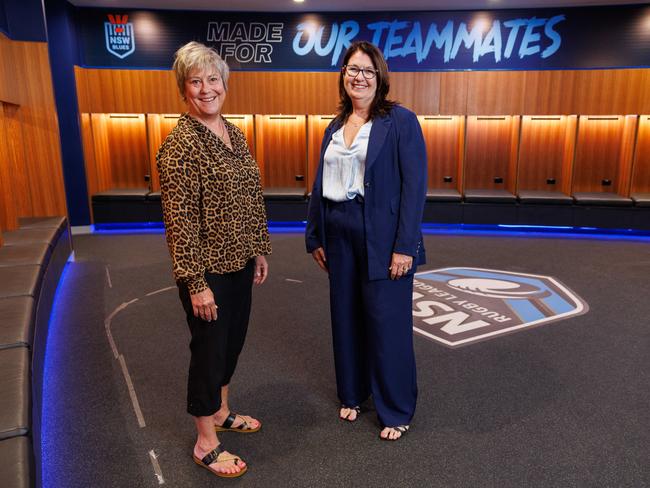
CHALLENGES AHEAD
While women’s rugby league is booming, it’s a precarious time for the sport as a whole.
Education around the long terms effects of concussion and how it will impact contact sports in the future is growing, while kids have more choice than ever when it comes to picking where to spend their family’s often limited registration budgets.
“I really think the reason they are attracted to other sports or play additional sports is because of representation through to other levels,” Campbell says.
“When I was the CEO of Netball, we lost a whole cohort when rugby sevens became an Olympic sport.
“Particularly those athletes that were of Pacific Island heritage and already had a rugby sevens sort of background.
“And of course the draw card of an Olympics is something that we can’t compete with.
“But because of the changing nature of the rep profile, the women’s Origin product is very authentic.
“It is very genuine and it is very much something people are wanting to consume.
“So you’re not just trying to stick a W on the end or the front of a name and make it into something it’s not.
“It is actually very genuine and authentic.
“And I think for that reason, and the way that’s being profiled and socialised, is creating a situation where we can get so many people attracted into the sport and wanting to stay in the sport.”
She has also denied interest in a national reserve grade competition, but backs the “best competition structures, whatever they may be validated to be”.
“I suppose that’s that independence I bring to my diversity of thought,” she says.
“Whatever works best for the competition as a whole, including the player development, the awareness, the profile, the commercialisation, whatever it might be, they all have to add up.”
There was a push by the NRL for a national reserve grade competition a few years ago, combining the NSW and Queensland Cups into one with games played prior first grade as curtain raisers.
Gale though, has a warning.
“Growth’s about depth, not width. And while I love the fact that we are looking to make our game at a national level and even globally, I think it’s really important that we take those steps slowly, particularly with the women’s game because we are still very much in its embryonic growth format,” she says.
“We don’t want to go too big too soon.”




